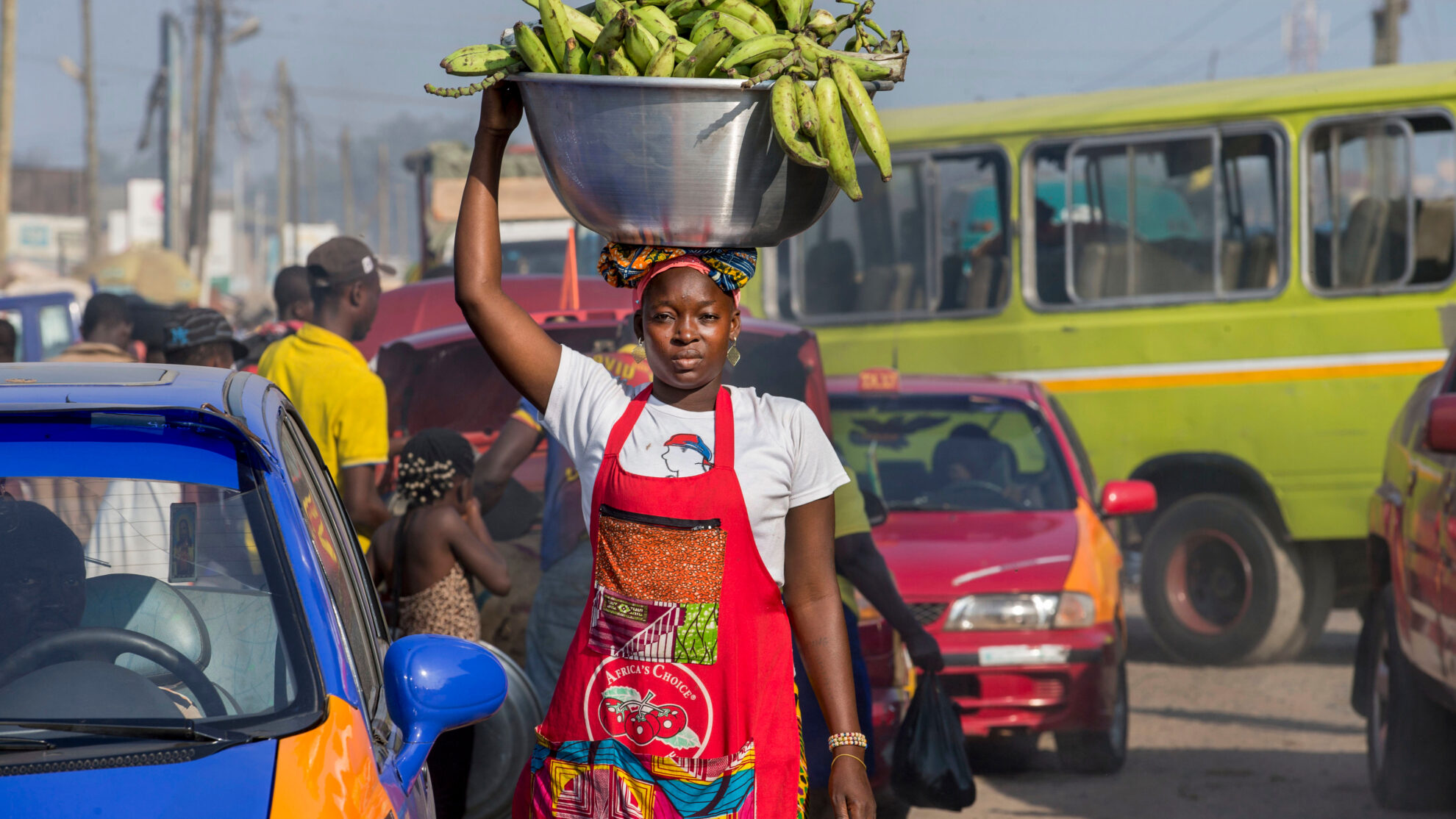Negotiating for improved working conditions and social benefits
In 2011, through a multi-stakeholder workshop, informal economy workers engaged in negotiation with city and national government representatives for improved occupational health and safety (OHS) in informal markets. Negotiations focused on the provision of fire extinguishers in publicly owned markets, improving waste management, and on the clearing of clogged drains in and around market areas. Concessions from government included: fire extinguishers for public markets, clearing of a clogged drain, and the establishment of a monitoring committee to evaluate the effectiveness of private waste management companies.
More about OHS gains in Ghana.
Health care access for head porters
In 2012 WIEGO facilitated a health policy dialogue between head porters, (known as kayayei in Ghana) and representatives from the National Health Insurance Authority and the Ghanian Ministry of Health. At the dialogue the kayayei shared their frustrations at the difficulty they faced in accessing health services due to high premiums and lack of clear information. Two important commitments emerged from the discussions: the NHIS agreed to a negotiated reduction in the annual premium (down to $2.50), and the NHIS agreed to hold a designated registration for the kayayei. During the registration over 1000 kayayei were registered. Read more about the health policy dialogue.
Dialogue between municipal authorities and street traders
In 2013, WIEGO facilitated a policy dialogue between informal street traders and officials from the Accra Metropolitan Assembly (AMA) and the Ga East Municipal Assembly.
Read more about how street traders made their concerns heard by municipal officials.
Advocacy to abolish the toll on kayayei
In 2016, MBOs met with representatives from all political parties in a town hall policy meeting. At the meeting, the candidates presented their proposals for policies and programs supportive of the informal economy. The MBOs responded by outlining their own proposals and concerns: chief among them, a toll imposed on kayayei by the Accra municipality. The toll assumes these workers are self-employed, when they are actually wage workers hired by market traders and customers. The New Patriotic Party (NPP) committed to abolishing the toll. During the meeting, the NPP also outlined additional proposals meant to benefit informal workers, which included a capacity-building project for market porters, development of funds for delivery of credit to market vendors, upgrades and improvements to market infrastructure, and the development of insurance policy schemes.
After the NPP was elected in 2016, kayayeis initiated a process of engaging with the new government to remind them to make good on their promise to abolish the toll. One of their first actions was to organize a victory march. The efforts of the market porters paid off. The new Finance Minister announced on March 2, 2017 that the toll would be abolished.
